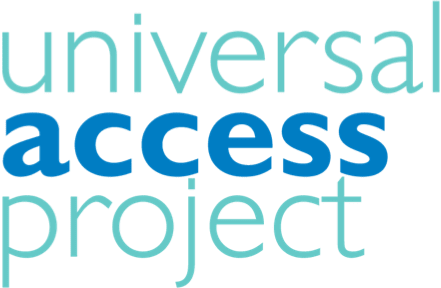
Committing to build safe, healthy, and equitable futures for women globally
Private Sector Commitments for Women’s Health & Wellbeing
The Universal Access Project, in partnership with Global Citizen, is calling on global corporations and national companies to make tangible, time-bound women’s health commitments, and invest in long-term policies, practices and programs that advance women’s health, wellbeing and equality at the workplace and in their communities.
Take action today.
We can support you to get there. Write to us to learn more about the commitment-making process and how we can support your company!
Each corporate commitment will be different, reflecting a company’s business context, priorities, and sector. Yet, a women’s health commitment must be new or additional investments or initiatives that address key women’s health issues in their operations, supply chains or surrounding communities - with the aim of evolving it’s internal policies, practices and programs on health.
Companies are encouraged to bundle their commitments. Companies may be exploring pledges or commitment with other organizations or initiatives. These external commitments can be bundled with commitments to UAP as part of a package. This enables companies to leverage their overall corporate investment in women‘s health and related issues.
Commit NOW
-
Health Benefits - Provide/expand benefits on reproductive health, fertility, and enable or expand access to needed services for family planning.
Leave Policies - Adopt policies for parental leave as well as for flexible, short-term leave for onsite/offsite primary health services without disclosure of health issue.
Violence & Harassment - Establish no tolerance and reporting policies on sexual harassment and GBV.
Health Assessment - Incorporate worker and women’s health issues into auditing, worker surveys and worker voice activities.
-
Women’s Health Products - Provide workers with sanitary napkins and family planning
External Health Providers - Make formal agreements with qualified providers for onsite or offsite services.
Government Services Support - Assist workers in accessing government benefits and build linkages with service agencies and law enforcement.
Health Clinic Improvement - Build capacity of workplace health staff on women’s health services, referrals, counseling, quality standards, and data collection.
Health Data Collection & Reporting - Adopt metrics that that capture worker health needs and identify areas of action
-
Worker Health Education & Awareness - Establish ongoing worker programs, peer education, and communications on women’s health, GBV, self-care, nutrition, vaccination etc.
Management Training - Incorporate women’s health and GBV training into supervisor and senior leadership capacity building.
Telemedicine - Provide access to doctors and nurses via phone for RMNCH services.
Screening & Vaccination - Offering onsite/offsite cancer screening and vaccinations for workers and families.
-
Partner with local and global organizations with workplace women’s health initiatives to implement improve health policies and practices. These include RISE, CARE, International Planned Parenthood Federation and affiliates, Marie Stopes International, SWASTI, UNFPA country offices, among many others.
-
Women’s Empowerment Principles - Become a WEPs signatory and commit to using the WEPs Gap Analysis Tool to establish baseline for action on reproductive health, GBV and other gender issues relevant to women’s health.
Collective Action - Join coalitions that advance women’s health, including the UNFPA Coalition on Reproductive Justice in Business, WEF’s Global Alliance on Women’s Health, and FP2030.
Binding Agreements - Make a binding commitment to multi-sectoral agreements that address occupational health, GBV, family planning and related issues, such as the Accord and the Dindigul Agreement.
-
Provide funding for initiatives, campaigns and ongoing research on public services and vaccines for women and their families, including RISE, UNFPA, GAVI etc.
Illustrative Examples
These are examples of women’s health commitments that companies have made in the past with UAP to guide you on your commitment-building process. We recommend companies to make a commitment which is a combination (or bundle) of these options.








